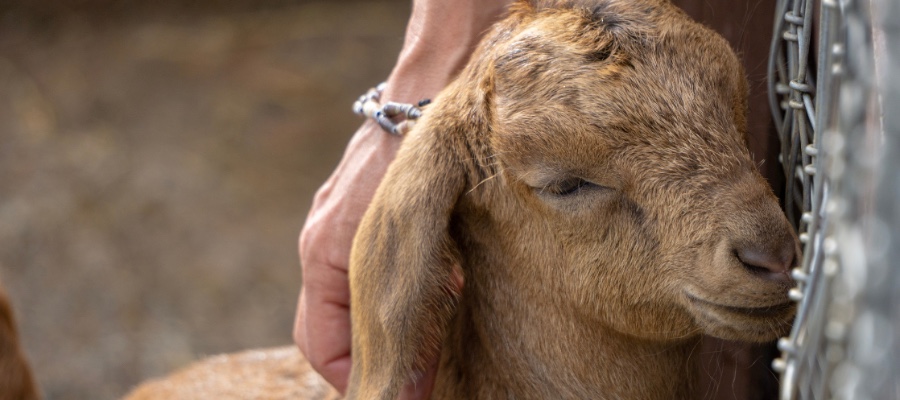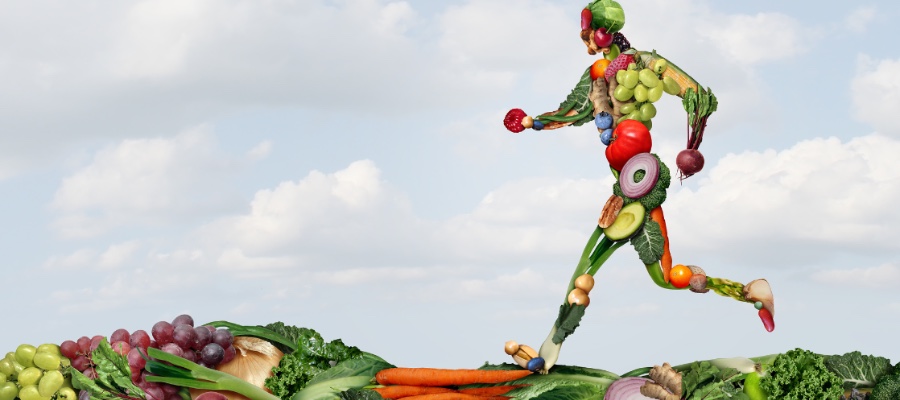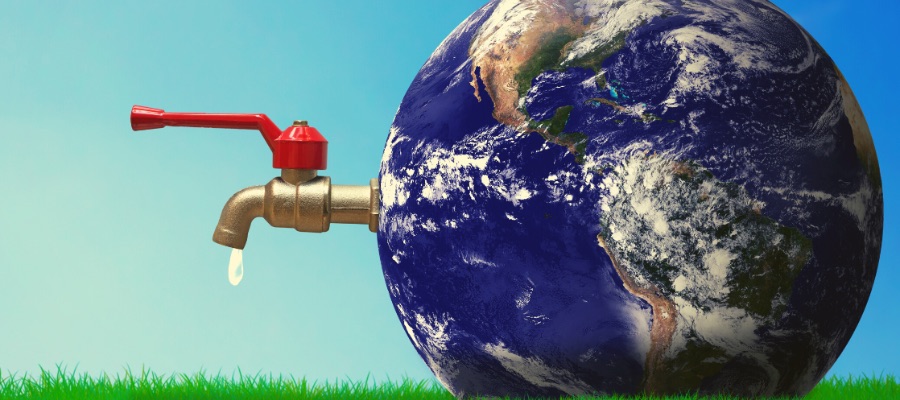The views expressed in our content reflect individual perspectives and do not represent the authoritative views of the Baha'i Faith.
If we can feed ourselves without hurting vulnerable populations, participating in the brutal sacrifice of another life, and also improve our health and help sustain the environment, then why don’t we?
RELATED: 9 Health and Wellness Tips from a Baha’i Perspective
November is World Vegan Month — a time to celebrate the vegan lifestyle and shine a light on this more compassionate way of living. For those of you who don’t know, vegans eat neither animals nor their products (dairy and eggs), whereas vegetarians eat animal products but don’t eat animals.
RELATED: Why We’re Raising Our Children Vegan
As a Baha’i, I feel a responsibility to continually strive to better myself and our world. I see veganism as an act of service to our planet and all of its inhabitants. The Baha’i teachings have shaped the many reasons why I am a vegan:
1. Stopping Animal Cruelty

The Baha’i writings illustrate the utmost kindness we should show to all living creatures. Abdu’l-Baha, one of the central figures of the Baha’i Faith, wrote:
Unless ye must, bruise not the serpent in the dust,
How much less wound a man.
And if ye can,
No ant should ye alarm,
Much less a brother harm.
The Baha’i teachings ask that we treat animals with the utmost kindness and tenderness. Baha’u’llah even listed kindness to animals as one of the qualities that humans need to acquire in their search for God, because in order to spiritually develop, we need to respect every living being.
2. Environmental Benefits of Veganism

The Baha’i teachings encourage us to behold every creation with awe and reverence. Baha’u’llah, the founder of the Baha’i Faith, wrote that “a sign of the revelation of God” exists in every created thing:
Know thou that every created thing is a sign of the revelation of God. Each, according to its capacity, is, and will ever remain, a token of the Almighty.
Inasmuch as He, the sovereign Lord of all, hath willed to reveal His sovereignty in the kingdom of names and attributes, each and every created thing hath, through the act of the Divine Will, been made a sign of His glory.
So pervasive and general is this revelation that nothing whatsoever in the whole universe can be discovered that doth not reflect His splendor.
If we wish to show reverence to God, we need to show reverence to everything God created, because everything in the universe reflects His splendor. As a Baha’i, I see veganism as the ultimate act of reverence and kindness to animals and to our planet.
Toxic waste, water loss, and land and soil degradation from the meat industry result in degradation of the world’s environment. According to the World Health Organization and the US Department of Agriculture, the waste generation from livestock is not only a major pollutant, but a serious health risk. In the United States, 7 billion livestock generate 130 times more waste than 300 million humans.
Companies funnel livestock manure and urine into massive waste lagoons, sometimes holding as many as 40 million gallons. These cesspools often break, leak or overflow, polluting underground water supplies and rivers. They contain high concentrations of nitrogen, phosphorous, and potassium compounds and traces of metals and antibiotics. Concentrated livestock waste produces harmful odors and gases such as carbon dioxide, methane, and nitrous oxide, which scientists implicate in climate change.
According to the Worldwatch Institute, “One ton of methane, the chief agricultural greenhouse gas, has the global warming potential of 23 tons of carbon dioxide. A dairy cow produces about 75 kilograms of methane a year, equivalent to over 1.5 [metric] tons of carbon dioxide.” Atmospheric concentrations of methane increased by 150% over the past 250 years due to the increase and expansion of the energy intensive agriculture of livestock production.
According to scientists at the Smithsonian Institution, “seven football fields’ worth of land is bulldozed every minute to create more room for farmed animals and the crops that feed them.” The intensification and expansion of livestock production results in deforestation, desertification, soil compaction, and erosion, and facilitates the spread of invasive animals and diseases. Deforestation itself accounts for 20% of global emission of greenhouse gases, whereas vegan diets produce the lowest GHG emissions.
Humanity’s population is expected to reach 9.8 billion by 2050, and if society continues to support energy-intensive agriculture for the current ever-advancing animal-based diet, the Earth may no longer be able to sustain us.
Fortunately, I believe that a solution exists: global veganism. Many people operate under the assumption that we are biologically designed to eat meat. However, the Baha’i writings explain that humanity has never needed to eat animals or their products. Abdu’l-Baha wrote:
But now coming to man, we see he hath neither hooked teeth nor sharp nails or claws, nor teeth like iron sickles. From this it becometh evident and manifest that the food of man is cereals and fruit. Some of the teeth of man are like millstones to grind the grain, and some sharp to cut the fruit. Therefore he is not in need of meat, nor is he obliged to eat it. Even without eating meat he would live with the utmost vigour and energy.
For example, the community of the Brahmins in India do not eat meat; notwithstanding this they are not inferior to other nations in strength, power, vigour, outward senses or intellectual virtues. Truly, the killing of animals and the eating of their meat is somewhat contrary to pity and compassion, and if one can content oneself with cereals, fruit, oil and nuts, such as pistachios, almonds and so on, it would undoubtedly be better and more pleasing.
3. Reducing Water and Food Insecurities

The Baha’i teachings view a plant-based diet as praiseworthy and as a sign of compassion. Not only does it reduce pollution, lower our carbon footprint and increase land availability and preservation, but it also decreases food and water insecurities. Baha’u’llah wrote:
Blessed is he who prefers his brother before himself.
Many people don’t realize that increasing meat and dairy consumption contributes to dehydration and starvation worldwide.
About one billion people live without access to clean drinking water, and go to bed without having had enough to eat. Livestock production currently uses 70% of the world’s available drinking water to irrigate croplands and nourish the livestock. Animals raised for meat cause the heaviest water usage. So, in order to increase the amount of water available, we must reduce the amount of meat we eat.
As the Worldwatch Institute wrote, “The standard diet of a person in the United States requires 4,200 gallons of water per day (for animals’ drinking water, irrigation of crops, processing, washing, cooking, etc.). A person on a vegan diet requires only 300 gallons a day.”
Regarding food insecurity, for the past fifty years, “35%-40% of consumed grains in the world had been used to feed livestock,” according to the Asia Pacific Journal of Clinical Nutrition. The journal discussed how feeding livestock reduces the available foods for human consumption. This causes the prices of food to increase and makes food less affordable to the poor, supporting the issue of malnutrition for the less fortunate.
Clearly, global veganism would result in more people having enough to eat and having a better quality of life.
4. Vegan Health Benefits

Around 100 years ago, Abdu’l-Baha indicated:
The time will come when meat will no longer be eaten. Medical science is only in its infancy, yet it has shown that our natural food is that which grows out of the ground.
That time has come. Medical science already shows that meat consumption is linked to cardiovascular diseases, cancer, and diabetes. For example, USDA researchers have discovered that “eating two ounces of chicken per day – the equivalent of a third to a half of a boneless breast – exposes a consumer to 3 to 5 micrograms of inorganic arsenic, the element’s most toxic form.” Daily exposure to low doses of arsenic can cause cancer, dementia, and/or neurological problems.
We have the power to avoid a looming crisis – both personal and planetary – by simply changing what we eat. If we all make the effort to eat lower on the food chain by consuming a plant-based diet, we will have a positive effect on our planet, conserve the Earth’s resources, and allow the environment to sustain us.
The Baha’i teachings don’t forbid the eating of meat, and regard each individual’s diet as their own personal choice. However, the Baha’i writings, with their emphasis on kindness to animals and our planet, and therefore a less meat-intensive pattern of consumption, will inevitably help lead the world toward a more sustainable future.
You May Also Like
Comments

















Wish you all the best!